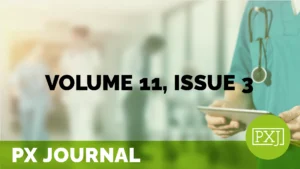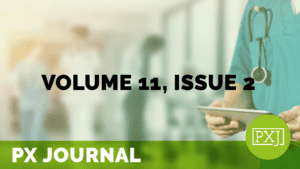Patient and Provider Partnership: The Road to Health Literacy

Jennifer Kemp, MD FACR | Vice Chair Quality & Operations Department, University of Colorado School of Medicine Radiology | Chief Patient Experience Officer, Scanslated
Linda Sample, BCPA, CPXP, Healthcare Consultant and Patient Advocate, Empowered Healthcare, LLC
A patient and provider share their personal journeys of empowering patients through increased health literacy. The webinar explores the 21st Century Cures Act, a federal mandate intended to increase transparency and patient access to personal health information, and the gap between information access and comprehension to make healthcare decisions. Tools will be discussed that can be integrated into existing workflows and across healthcare disciplines.
Related content
-
 Patient Family & Community Engagement
Patient Family & Community EngagementPatient Engagement and Co-creation in Healthcare Services: A Scoping Review
Objective: The objective of this review was to find literature related to the concepts of patient engagement and co-creation in healthcare services and identify models and/or frameworks that combined these concepts. Methods: We developed the eligibility criteria using the Population-Concept-Context framework applicable to studies with population of patients exploring the concepts of engagement and co-creation
Learn more -
 Culture & Leadership | Infrastructure & Governance | Innovation & Technology
Culture & Leadership | Infrastructure & Governance | Innovation & TechnologyED Processes & Improvements: Implementation Best Practices & Outcomes
2pm ET / 1pm CT / 12pm MT / 11am PT – In this webinar, an Associate Chief Experience Officer, a Program Director, an Analyst, and a consultant will present what they did to improve patient experience outcomes across seven hospitals’ emergency departments which resulted in improved HCAHPS scores in all seven hospitals. The strategic,
Learn more -
 Quality & Clinical Excellence
Quality & Clinical ExcellenceAccompanying People Affected by Cancer in Their Return to Life After Treatment: A Report on an Experiment Conducted in Canada
This study aims to assess family doctors’ perceived needs for improved patient follow-up post-acute treatment in oncology departments, specifically focusing on the Patient Oriented Discharge Summary (PODS) for individuals living with cancer.
Learn more
